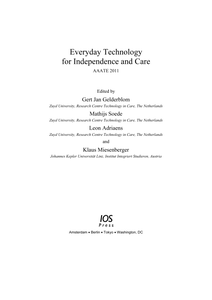How to conceptualize online sociability in the 21st century? To answer this question, Communities at a Crossroads looks back at the mid-2000s. With the burst of the creative-entrepreneur alliance, the territorialisation of the internet and the commercialization of interpersonal ties, that period constituted a turning point for digital communitarian cultures. Many of the techno-libertarian culture’s utopias underpinning the ideas for online sociability faced systematic counter evidence. This change in paradigm has still consequences today.Avoiding both empty invocations of community and swift conclusions of doom, Annalisa Pelizza investigates the theories of actions that have underpinned the development of techno-social digital assemblages after the ‘golden age’ of online communities. Communities at a Crossroads draws upon the analysis of Ars Electronica’s Digital Communities archive, which is the largest of its kind worldwide, and in doing so presents a multi-faceted picture of internet sociability between the two centuries.Privileging an anti-essentialist, performative approach over sociological understandings of online communities, Communities at a Crossroads proposes a radical epistemological turn. It argues that in order to conceptualize contemporary online sociability, we need first to abandon the techno-libertarian communalist rhetoric. Then, it is necessary to move beyond the foundational distinction between Gemeinschaft and Gesellschaft, and adopt a material semiotic approach. In the end, we might have to relinquish the effort to define online or digital communities and engage in more meaningful mapping exercises.
MULTIFILE
DOCUMENT
Transitions in health care and the increasing pace at which technological innovations emerge, have led to new professional approach at the crossroads of health care and technology. In order to adequately deal with these transition processes and challenges before future professionals access the labour market, Fontys University of Applied Sciences is in a transition to combining education with interdisciplinary practice-based research. Fontys UAS is launching a new centre of expertise in Health Care and Technology, which is a new approach compared to existing educational structures. The new centre is presented as an example of how new initiatives in the field of education and research at the intersection of care and technology can be shaped.
DOCUMENT

Hoofdstuk in Progression in forensic Psychiatry: About Boundaries van prof. mr. Marc Groenhuijsen en prof. dr. T.I. Oei. As a young adolescent the man started using soft drugs and as a result was expelled from school. Following a registration with RIAGG he was placed in a children’s home for some years. From the age of twenty he was a frequent substance user. He got hold of these substances because his father was a dealer. There were contacts with psychiatrists and psychologists and he was on an anti-psychotic medication that is prescribed with schizophrenia. Over a period of eight years he was admitted eight times to a psychiatric hospital with diagnoses such as recurring paranoid schizophrenia, recurring poly-hard drugs use and ADHD. During his hospitalizations he took no medication, did not satisfactorily comply with agreements and frequently withdrew from treatment prematurely in spite of advice to the contrary. He was ultimately given Tbs (1). In the introduction of a theme issue on Mental Health Care and Justice of Justitiële Verkenningen [Judicial explorations] from 1991 concerning such a track record it was stated that many stories can be told about it. “Two of them have farreaching consequences. From the point of view of the judiciary the track record is evaluated as to the degree of guilt casu quo attribution and the need to make society secure. From the point of view of mental health care a person with a mental disorder committed an offence as a result of his condition and needs help” (2) Dangerous or mad, that is the division that is sectorially made.
DOCUMENT
I shall use this editorial to express my mixed feelings about the COVID-19 pandemic that affected our lives strongly, personally and professionally, in very different ways for over two years. Going back to our schools, colleges and universities, without even wearing facemasks, sometimes feel a bit unfamiliar. This unfamiliarity also touches upon the way we think and act in our daily work. We are virtually standing at a crossroads: are we returning to our previous routines or moving ahead by incorporating our new pandemic-related experiences into our routines?
DOCUMENT

DOCUMENT